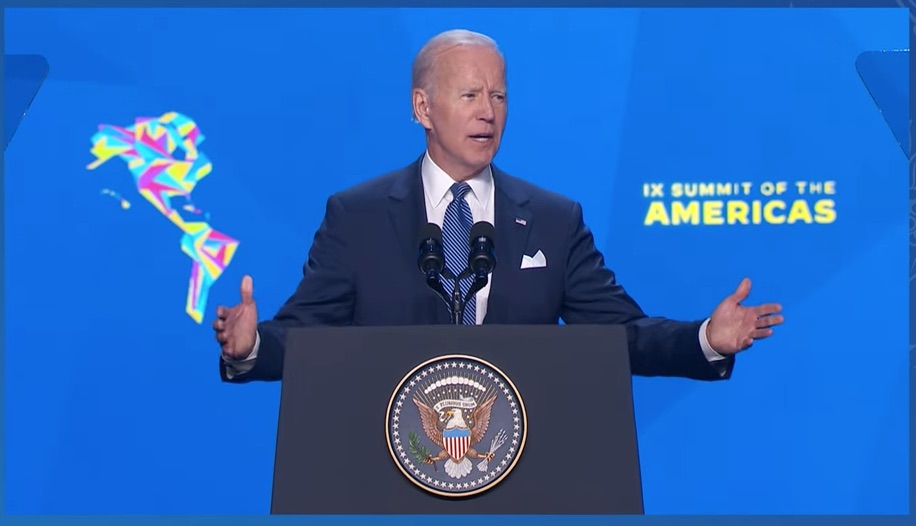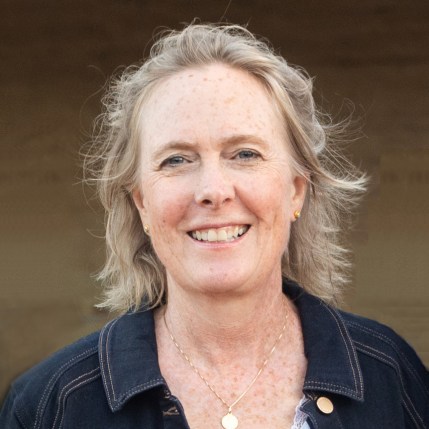Climate: Front and Center
Summit of the Americas Brought Climate Justice to the Fore

“When I hear climate, I think jobs. Good-paying, high-quality jobs will help speed our transition to a green economy of the future and unleash sustainable growth: jobs in developing and deploying clean energy, jobs in decarbonizing the economy, jobs in protecting biodiversity of our hemisphere, jobs that provide dignity of being able to feed your family, give your children a better life.”
Those words by President Biden were spoken last week not far from us at the 9th Summit of the Americas in Los Angeles. The summit is an institutional gathering to renew cooperation and reaffirm democracy, bringing together heads of states and governments from 35 countries, including Canada, Peru, and Brazil.
From day one, the Biden Administration has elevated climate change as a central component of U.S. foreign policy, signified by former Secretary of State John Kerry holding the newly created position of U.S. Special Envoy for Climate. (See Biden and the Environment: A Talk With the Community Environmental Council.) The White House used the Summit of the Americas as an opportunity to make significant global commitments to combating the climate crises. I took special note of the following advancements that relate to the progress the Community Environmental Council is making in our region. (Details can be found at WhiteHouse.gov.)
Building a Troop of Climate Activists
First, just as we are working locally to catalyze individuals to become climate action leaders, the White House is seeking to empower students within the Americas with the creation of the 100K CLIMA initiative, which stands for 100,000 Strong in the Americas Climate Initiative. This people-centered plan involves governments, the private sector, and 2,500 higher education institutions with the shared goal of empowering students to develop the expertise and technical skills to lead in a clean energy economy.
Addressing Climate Justice and Sea-Level Rise
Second, the White House acknowledges the outsized impact of climate change on island nations facing sea-level rise — a reality that foreshadows what we will be experiencing more of on our coast. They also addressed a reality we are tackling locally: Those who are disproportionately burdened by climate change are more sensitive to negative impacts and have less access to the resources and institutional support needed to build more resilient communities. Vice President Kamala Harris was given the honor of announcing a new initiative, the U.S.-Caribbean Partnership to Address the Climate Crisis 2030, which establishes a framework for the U.S. to address challenges that acutely impact Caribbean nations, specifically sea-level rise. As John Kerry said in his speech at the summit, ”Tiny islands in the Caribbean … [are] not the main contributor to the problem. The main contributors to the problem are 20 countries; 20 countries equal 80 percent of all the emissions.”
California Clears the Path for Ambitious Goals
At the Summit of the Americas, California furthered its reputation as a trailblazer on climate action. Governor Newsom held a bilateral meeting with Canadian Prime Minister Justin Trudeau, signing a Memorandum of Cooperation “fighting climate change, reducing pollution, cutting back on plastic waste, advancing zero-emission vehicles, protecting the environment, and building climate resilience.”

Californian cities such as San Luis Obispo, Santa Barbara, and Goleta were early adopters of 100 percent renewable electricity goals. The Community Choice Energy programs that serve our region demonstrate that small to medium-sized communities like ours can lead the way by showing proof of concept on ambitious climate goals.
Regional leadership is important, as the Biden Administration signaled by announcing another cornerstone initiative: Renewable Energy in Latin America and the Caribbean (RELAC), which mandates reaching 70 percent installed capacity for renewable energy generation in the region’s electricity sector by 2030. Previously 15 countries had signed on to this pledge. At the summit, five new countries — Barbados, Jamaica, Guyana, Argentina, and Brazil — announced their intention to participate. While we were disappointed by the absence of key Latin American countries from the summit — including Mexico, Venezuela, and Cuba — we applaud this news.
It Is Not Too Late
The overall approach conveyed at the Summit of the Americas last week mirrors our mission here on the Central Coast: While the climate crisis is daunting, the science dictates that it is not too late to mitigate and adapt. It’s time to lean into solutions like never before — and that means unrelenting, focused, and inclusive climate action — with our neighbors abroad and right here at home.
Sigrid Wright is executive director and CEO of the Community Environmental Council (CEC) with 30 years of experience in environmental advocacy. In 2022 she was named Congressional Woman of the Year; and in 2020 CEC was recognized as a California Nonprofit of the Year and City of Santa Barbara Climate Hero.




You must be logged in to post a comment.